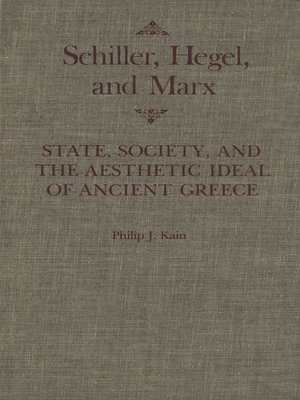Schiller, Hegel, and Marx
ebook ∣ State, Society, and the Aesthetic Ideal of Ancient Greece
By Philip Kain

Sign up to save your library
With an OverDrive account, you can save your favorite libraries for at-a-glance information about availability. Find out more about OverDrive accounts.
Find this title in Libby, the library reading app by OverDrive.



Search for a digital library with this title
Title found at these libraries:
| Library Name | Distance |
|---|---|
| Loading... |
All three believed that the modern world could be remade according to this model, though none succeeded in his endeavor. At times Schiller seemed to recognize the failure of the model; in his mature writing Hegel dropped the model; and Marx, as he grew older, fundamentally modified the model. Nevertheless, focusing upong their attempts and failures allows an explanation of certain aspects of one of the fundamental concerns of current Marx studies: Marx's humanism and the relationship between his earlier and later thought. Using this approach, Kain shows that Marx's development cannot be divided into two neat periods - an early humanistic or philosophical period and a later scientific period - as some scholars argue, nor can one argue for an essential unity to his thought as other scholars do. Instead Kain finds Marx continually shifting his views in his attempt to come to grips with the issues that concern him. But Kain also finds a deep-seated humanism in Marx's later writings which grows out of, but differs from, the humanism of his early work.







